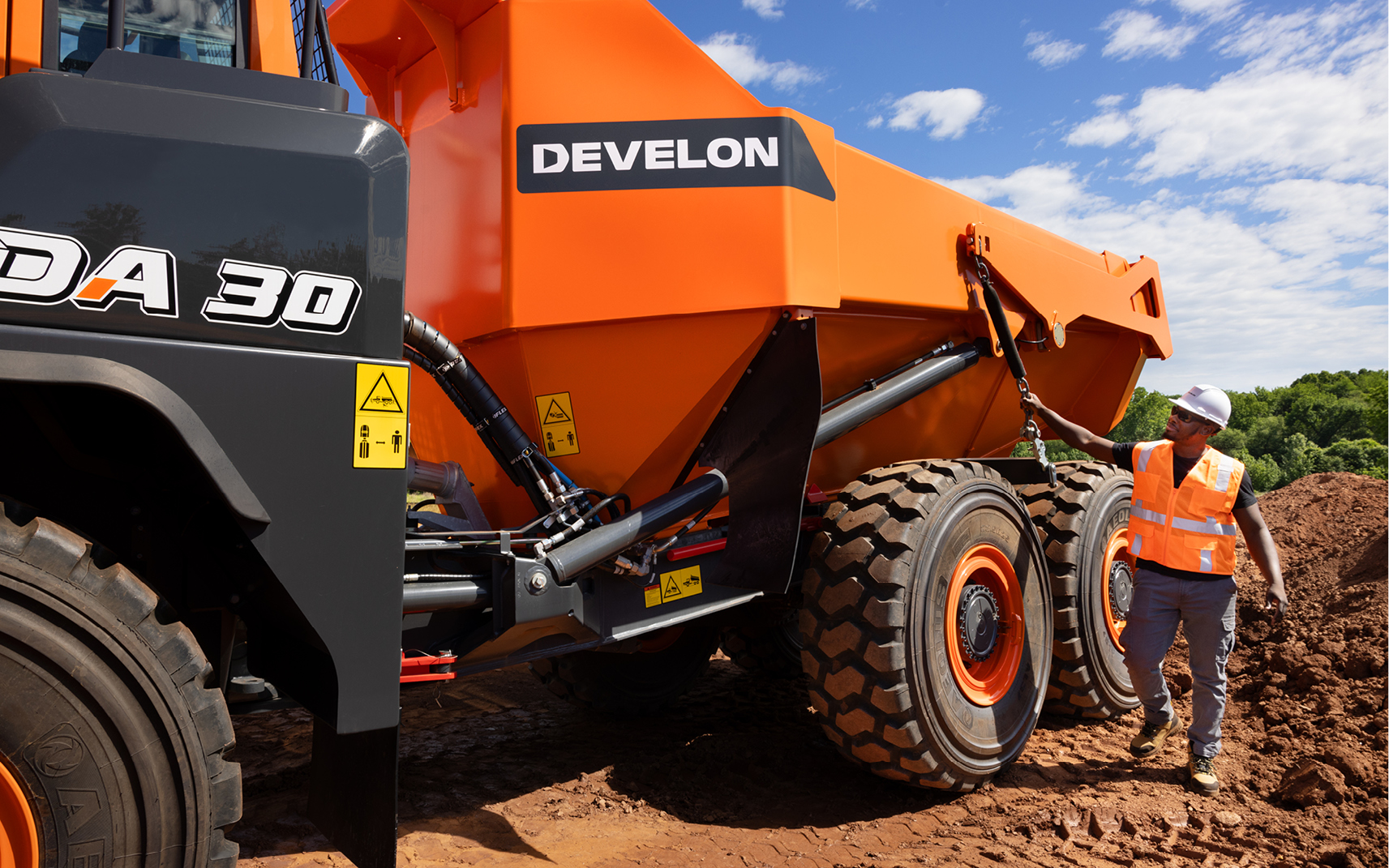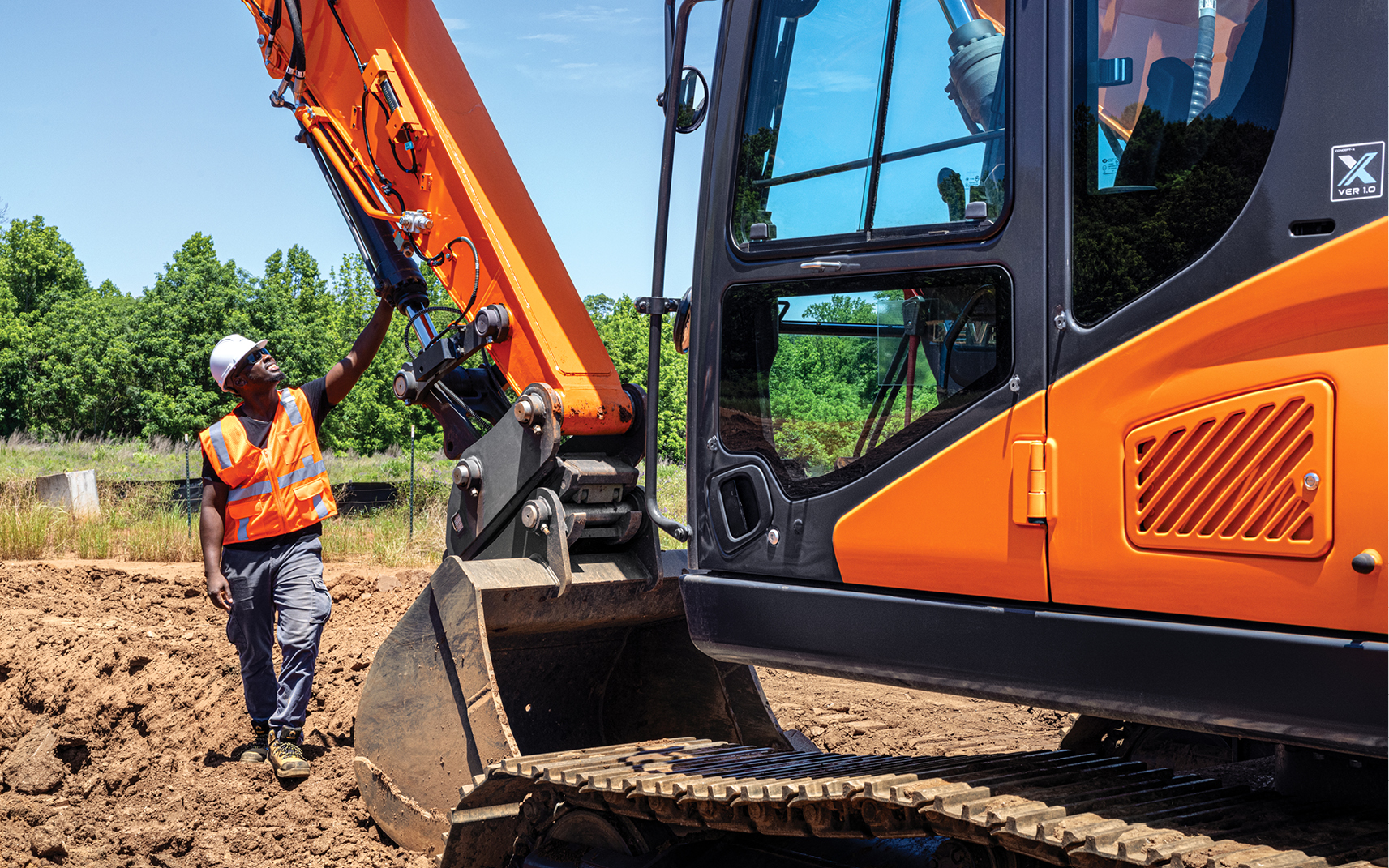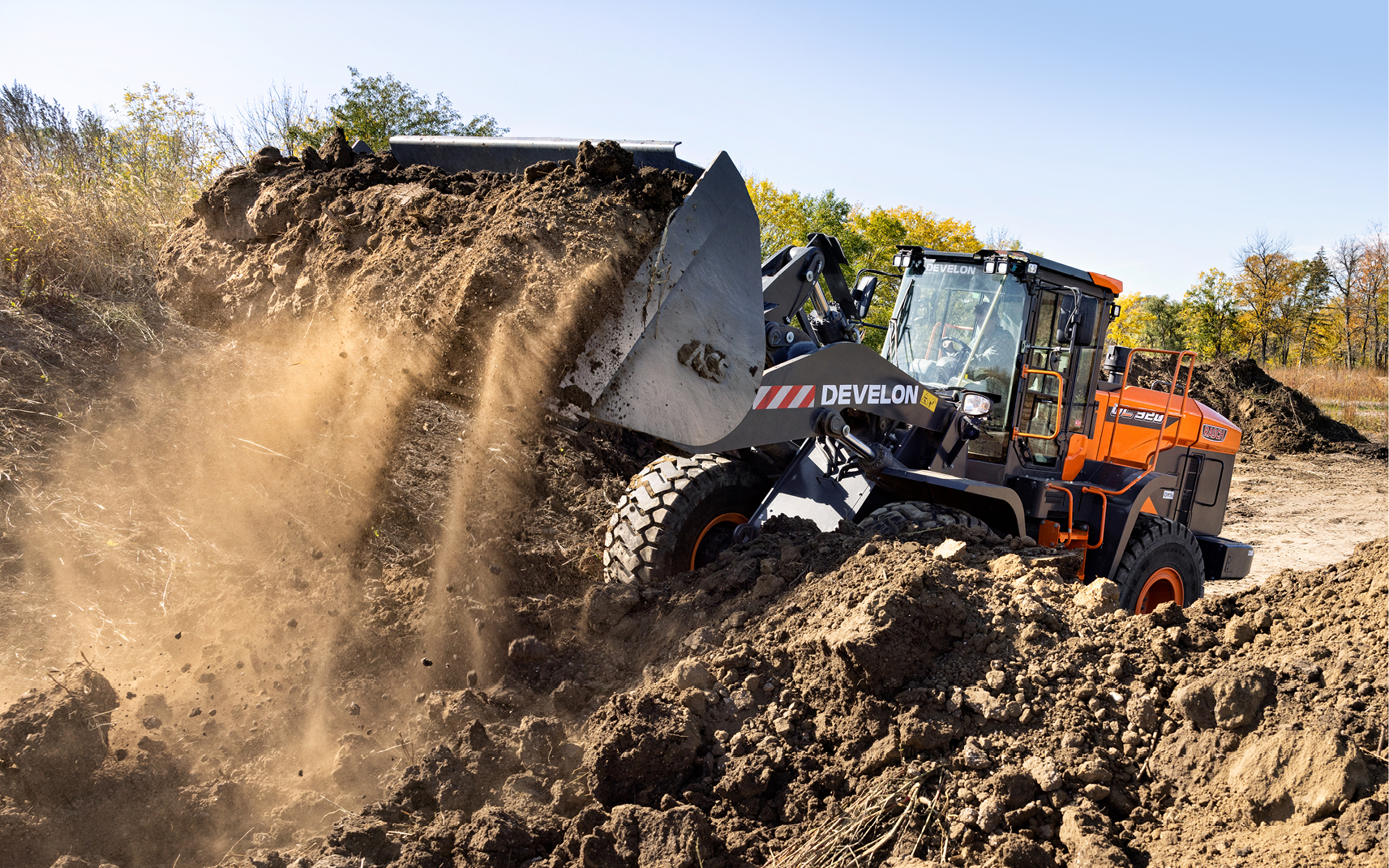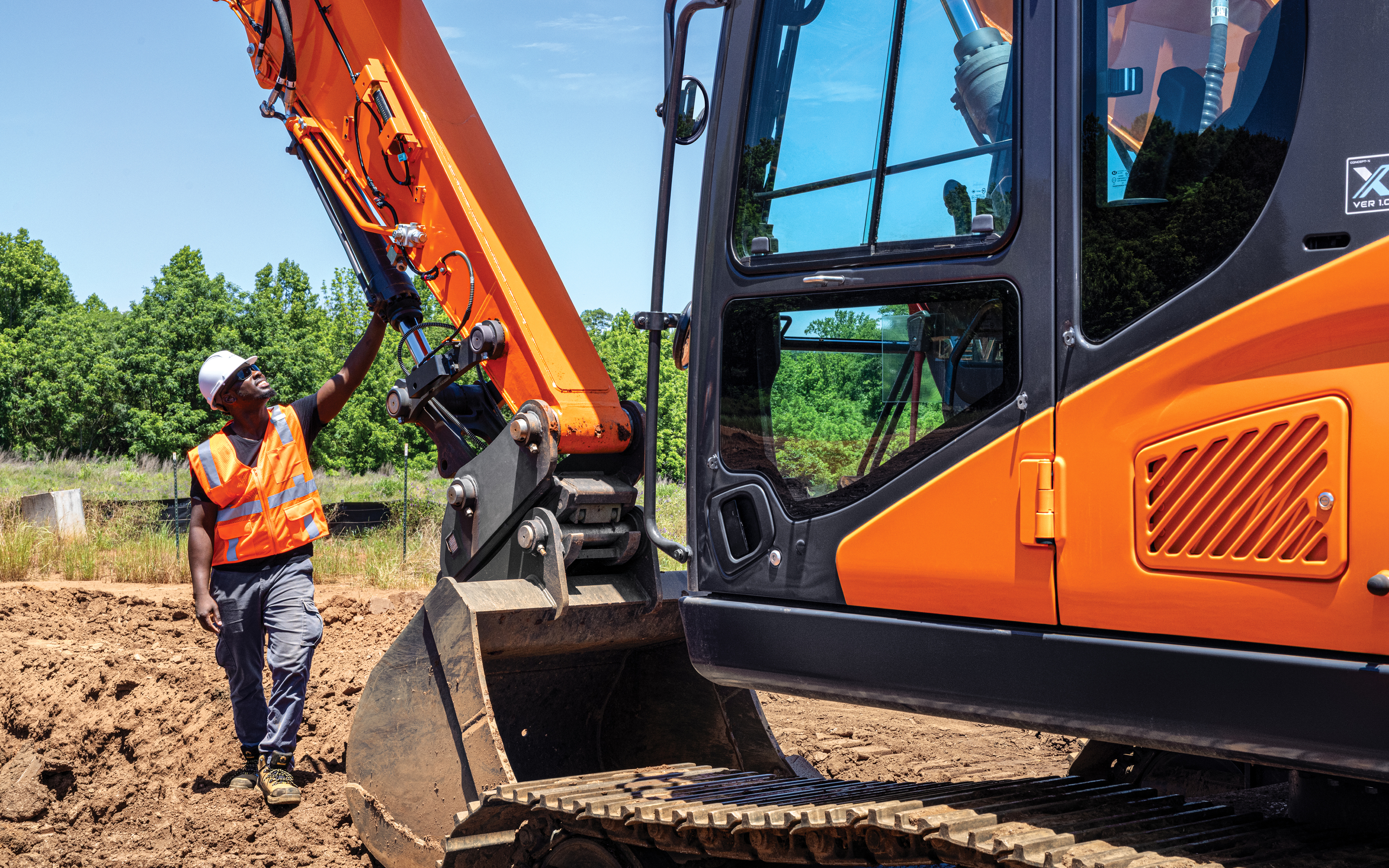A car lasts longer if you take care of it, the same goes for construction equipment. With proper care, most machines can exceed their life expectancies. To extend your construction equipment lifespan, focus on two key areas: proper operation and consistent planned maintenance.
Here’s an overview of essential tips and strategies that will not only help you protect your machines but also ensure that your pieces of equipment stay in good condition for years to come.
Heavy Equipment Tips for Better Performance
Operating a machine correctly reduces stress on its parts and prevents premature wear. Here are a few ways to make sure you're operating your equipment properly:
- Follow the Operation and Maintenance Manual: Your equipment comes with specific instructions for safe and effective operation. Use the recommended guidelines to avoid unnecessary strain on the machine’s parts.
- Adhere to proper maintenance schedules: By staying on top of routine maintenance, such as oil changes or filter replacements, it helps keep your machine running in optimal condition.
- Match equipment to the task and terrain: Using a small excavator for a massive digging project can overwork its engine and hydraulic system, leading to early failure. Instead, choose a crawler excavator designed for heavy loads to avoid strain. Also, a standard wheel loader might struggle and wear out faster on rough, rocky ground. In this case, a larger wheel loader would be the better choice because it's built to handle difficult terrain without damaging its undercarriage.
Train Operators on Best Practices
Proper equipment operation is essential for extending equipment lifespan. Here are a few best practices:
- Adhere to warm-up procedures: Different types of equipment have unique warm-up and shut-down needs. Emphasize the importance of letting the machine warm up, especially in cold weather. This allows fluids to circulate and build proper pressure, preventing damage to the hydraulic system and other critical parts.
- Follow proper shut-down procedures: Teach operators to allow the engine to idle for a few minutes before shutting it off. This cool-down period prevents unnecessary wear on the engine.
- Encourage smooth and controlled movements: Jerking the machine or using sudden, aggressive motions puts extra stress on the hydraulic systems, leading to faster wear.
These heavy equipment tips help operators reduce unnecessary wear.
Protect Machines With Proper Setup
Properly outfitting your equipment for the job site is a key part of protecting your investment and ensuring its longevity. Here's how to do it:
- Match attachments to ground conditions. Using the wrong attachment for the job can cause unnecessary strain on the machine's components. For example, using a standard digging bucket to break through solid rock will stress the boom, pins and hydraulic system. A rock bucket with hard teeth or a hydraulic breaker is the better choice to prevent damage and reduce wear. Similarly, in an abrasive environment, protective guards are essential to shield vulnerable areas from constant friction and impact.
- Equip articulated dump trucks (ADTs) with the correct tire size, type and width for the job. This helps prevent premature wear and improves fuel efficiency. A tire designed for soft, muddy terrain will wear out quickly on a hard, rocky surface. For applications involving hauling abrasive materials like rock, adding a bed liner can prevent costly damage to the truck bed itself.
- Use protective guards to shield the undercarriage and axles from debris and rust. For instance, a heavy-duty guard on a crawler excavator's undercarriage can keep loose rock and rebar from derailing a track or severing a hydraulic line, which prevents a costly repair and a long delay on the job.
Follow a Preventive Maintenance Schedule
A valuable heavy equipment maintenance tip is to always consult your Operation and Maintenance Manual before performing service tasks. Performing regular inspections helps identify issues before they become costly failures. Daily and weekly maintenance tasks, such as fluid checks, help keep machines in good shape. Identifying worn parts early ensures they’re repaired or replaced before failure. If you don't have the manual, your dealer can secure a copy for each of your machines.
Also, telematics makes it easy to follow a schedule. These systems automatically track service intervals and send maintenance alerts, which helps you transition from a reactive to a proactive approach. For example, instead of your machine breaking down unexpectedly, you receive an alert that it's due for its 500-hour service, allowing you to schedule the work during a planned downtime and avoid costly project delays.
This data-driven approach, combined with simple tools like a daily and weekly equipment maintenance checklist, can help you keep your fleet running at peak performance.
Use OEM Parts for Better Performance
Unlike third-party parts that are designed to fit many different machines, OEM parts are engineered to the exact specifications of your equipment. This precision ensures a perfect fit and reliable performance, reducing the risk of a part failing prematurely.
For example, OEM filters and fluids are specifically formulated to meet the needs of your machine's systems, providing the right level of protection against contaminants and wear. Using genuine filters keeps your engine in good shape. Your dealer can be a valuable partner in this process, helping you create a parts strategy by advising you on which high-wear parts to stock.
Adjust Maintenance for Extreme Conditions
A machine’s operating environment has a major impact on its wear and tear, making it essential to adjust your planned maintenance routine.
For machines working on dusty job sites, a standard maintenance schedule may not be enough. Air filters, which protect the engine from dirt and debris, can clog much faster in these conditions, potentially causing reduced performance. In these environments, air filters may need daily checks and more frequent replacement.
Additionally, fuel and hydraulic filters can also become contaminated more quickly, leading to degraded performance and potential system failure if not changed on a routine schedule.
In the winter months, it's crucial to use seasonal-grade lubricants and coolants formulated to perform in low temperatures. This ensures that fluids can flow correctly and protect the machine's internal components from damage. In the summer months, using fluids with higher viscosity grades helps prevent overheating and protects against component breakdown, especially in the engine and hydraulic systems.
Leverage Remote Monitoring Services for Smarter Service
Telematics systems, which often come standard on modern heavy equipment, are a powerful way to remotely monitor multiple pieces of equipment across job sites. MY DEVELON fleet management acts as a diagnostic tool, tracking the health, location and productivity of your fleet from a mobile app or website. Remote monitoring helps save money by preventing unplanned downtime. Your local dealer can also access this data, allowing them to proactively notify you if a machine needs routine maintenance or service.
An enhanced telematics offering, Smart X-Care™, goes a step further by providing dedicated support. A team of experts monitors your equipment and works directly with your local dealer to ensure prompt communication and optimal service.
Fleet management technology gives you access to vital equipment data that helps you maintain your machines, reduce the risk of theft and identify ways to work more efficiently. It helps lower downtime and extend equipment lifespan, reducing operational costs. By turning raw data into actionable insights, telematics empowers you to make smarter decisions for your business.
Build a Relationship With Your Equipment Dealer
A high-performing dealership is more than just a place to buy equipment; its staff are valuable partners. A few reasons why:
- Support beyond equipment sales: Dealers can recommend the right machine or part and provide access to financing, rentals and parts inventory. Your dealer can share another heavy equipment maintenance tip: stock OEM parts. They have an in-depth understanding of the equipment and can offer tailored advice to help you operate more efficiently. Service agreements can save money over time by bundling labor and OEM parts.
- Beneficial dealer service plans: Many dealers offer service plans that include scheduled preventive maintenance visits with knowledgeable technicians and a selection of genuine parts, ensuring that your equipment is always in top condition. A structured maintenance program helps standardize service and extend machine life. This partnership takes routine maintenance scheduling off your plate and gives you peace of mind that your equipment is properly cared for by experts.
By following these tips, you can extend your construction equipment lifespan and protect your investment. To learn more about how a comprehensive equipment maintenance strategy can benefit your business, contact your local DEVELON dealer today.

By DEVELON
DEVELON North America is a leading manufacturer of heavy and compact construction equipment and attachments, serving customers in a variety of industries with durable, reliable, and productive machines.




